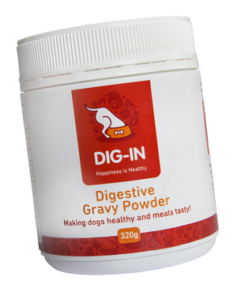 We often confuse food intolerances with food allergies, mainly because both share a range of symptoms that are common. As a pet owner, it is distressing to see your companion suffer from the associated uncomfortable symptoms. These affect the quality of life of your companion and their relationship with you. However, the mechanisms that cause these two conditions differ significantly, and it is important to know the difference so that you can help improve the health and wellbeing of your companion.
We often confuse food intolerances with food allergies, mainly because both share a range of symptoms that are common. As a pet owner, it is distressing to see your companion suffer from the associated uncomfortable symptoms. These affect the quality of life of your companion and their relationship with you. However, the mechanisms that cause these two conditions differ significantly, and it is important to know the difference so that you can help improve the health and wellbeing of your companion.
What are food allergies?
A food allergy occurs when the body’s immune system sees the food as a foreign object and mounts a reaction to eliminate it. The reaction is usually against proteins in the food ingested. Gluten is an example of this. When your companion eats the food, even in small amounts, the result is an allergic reaction. In addition, the response may involve organs other than the digestive tract.
A range of symptoms are observed that vary from mild to severe and may even be life threatening. Common symptoms of food allergies include:
- Itchy skin, especially around the face, paws, ears, forelegs, armpits and the anus
- Recurrent ear infections
- Excessive scratching and hot spots
- Hair loss
- Skin infections that are antibiotic responsive
- Increased bowel motions.
What is a food intolerance?
In contrast, the true food intolerance is dose-dependent, and is usually restricted to the digestive tract with mild to moderate symptoms. Typically, food intolerance symptoms include:
- Vomiting
- Gas, cramping or bloating
- Diarrhoea
- Irritability or nervousness.
Many factors can cause your pet to be intolerant to food. These include the lack of enzymes that digest the food, for example low lactase activity in lactose intolerance. Sensitivity to food additives may also cause a food intolerance. Such additives may be included in prepared diets to prevent the growth of mould, to colour the food or enhance the flavour. Irrespective of the cause, the balance of ‘good’ to ‘bad’ bacteria may be affected.
How can I prevent food intolerances?
The simple answer is to avoid giving the foods that cause the symptoms to your dog; however, this is not always possible. In this situation, having a healthy population of bacteria of the right type in the digestive tract can help. This does not prevent the intolerance, but it can help your pet cope if they eat the offending food by mistake.
Avoiding the culprit foods and including a digestive aid such as Dig-In should help your companion. Dig-In will support a healthy digestive tract, including the bacteria, and help you to keep your companion largely symptom free from food intolerances.
It is important to determine, as a pet owner, whether your companion is suffering from a food intolerance or a true food allergy. If in doubt, we at HiCare advise that you seek veterinary help.






